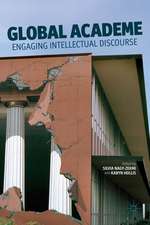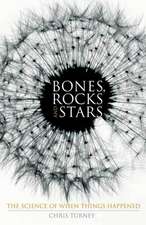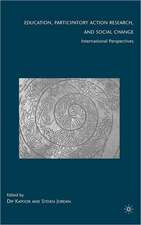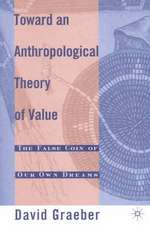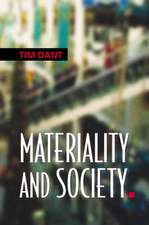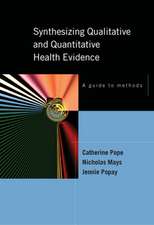Liberalism and Human Suffering: Materialist Reflections on Politics, Ethics, and Aesthetics
Autor A. Abbasen Limba Engleză Hardback – 17 noi 2010
| Toate formatele și edițiile | Preț | Express |
|---|---|---|
| Paperback (1) | 385.47 lei 6-8 săpt. | |
| Palgrave Macmillan US – 17 noi 2010 | 385.47 lei 6-8 săpt. | |
| Hardback (1) | 386.81 lei 6-8 săpt. | |
| Palgrave Macmillan US – 17 noi 2010 | 386.81 lei 6-8 săpt. |
Preț: 386.81 lei
Nou
Puncte Express: 580
Preț estimativ în valută:
74.03€ • 76.100$ • 61.11£
74.03€ • 76.100$ • 61.11£
Carte tipărită la comandă
Livrare economică 14-28 aprilie
Preluare comenzi: 021 569.72.76
Specificații
ISBN-13: 9780230104457
ISBN-10: 0230104452
Pagini: 244
Ilustrații: XII, 244 p.
Dimensiuni: 140 x 216 x 18 mm
Greutate: 0.39 kg
Ediția:2010
Editura: Palgrave Macmillan US
Colecția Palgrave Macmillan
Locul publicării:New York, United States
ISBN-10: 0230104452
Pagini: 244
Ilustrații: XII, 244 p.
Dimensiuni: 140 x 216 x 18 mm
Greutate: 0.39 kg
Ediția:2010
Editura: Palgrave Macmillan US
Colecția Palgrave Macmillan
Locul publicării:New York, United States
Cuprins
Introduction: Suffering's Dead? PART I: SUFFERING LIBERALISM Suffering, Incorporated The Theatre of the Ascetic The Liberal Sensorium PART II: RECUPERATING MATERIALISM From Noisy Spheres to Hidden Abodes The Fetishism of Injuries The Tragic Art of Historical Materialists
Recenzii
"Asma Abbas offers a complex critique of the way liberal thought has shaped the understanding of human suffering and, inspired by Marx and Nietzsche, she articulates alternative ways to think about suffering. Her argument is radical in the etymological sense of this word - it goes to the root of our political life by asking questions about what constitutes us as subjects and binds us to others. The book is intellectually exciting and morally challenging." - David Adams, Associate Professor, Department of English, Ohio State University
"Asma Abbas's Liberalism and Human Suffering develops a deep and bracing critique of liberal conceptions of justice. With unusual drive and wit, Abbas shows that justice in the liberal state requires theatrical displays of the suffering it claims to redress. In the ways it forces suffering to work for redress, liberal justice transforms suffering into the familiar and fetishistic forms of harm and injury which function as unthreatening calls for a rebalancing of the scales. Abbas's withering analysis of the calculative aesthetics of liberal justice demonstrates with mounting power how liberalism works not to address suffering but to cancel its political force. Far, then, from naming a regime of political justice, liberalism, we are driven by Abbas to conclude, is a regime that guarantees that suffering will never be experienced, heard, rallied to, as a cry for a new form of political life. Since, by contrast, real justice demands concrete transformations of our current social relations, we must find ways to overcome liberal practices of justice.
In peeling back the layers of injury that liberalism has added to the insults of human history, Abbas offers us the opportunity to think differently about the alternative forms of life that suffering makes possible. Her philosophical touchstones for this project are Marx and Nietzsche. Indeed, the second half of Abbas's book, in its passionate refusal to submit to the fear ofthe endlessness of human suffering, represents the first fresh interpretation of Marx's theory of the world-making force of human needs since Marcuse and Adorno. In other words, Abbas rightly sees that the unavailability of justice in any of its liberal forms demands and portends an alliance between wounds that have never ceased to seek their proper forms of overcoming and the hope for more life. Abbas's scholarly and interpretive achievements are remarkable in their own right, but they never become for her ends in themselves. In other words, at no point does Abbas lose sight of the utter timeliness of her critical work. Indeed, Abbas's probing and poetic account of Tony Kushner's Angels in America locates Liberalism and Human Suffering firmly in the most urgent political crises of our time, when radical politics seems incapable of sustaining the conviction that a better world is within our imaginative ken. Our politics is sorely in need of ways of critiquing the fetishes of injury, harm and victimhood in order to renaturalize and repoliticize suffering. Abbas makes a major contribution to that project.
Any recommendation of Liberalism and Human Suffering would be incomplete without reference to the sparkle and verve and sheer hopefulness of Abbas's prose. By turns dialectical and lyrical, philosophical and allusive, dark and illuminating, Liberalism and Human Suffering argues for a world in which thinking ceases to fear its most far-reaching capacities. But beyond this, it is, in its way, an emissary from that world. In Liberalism and Human Suffering, Abbas is inventing a unique form of critique that is evenly suspended between sober materialism and speculative generosity, between unflinching confrontations with human misery and the just life that can grow only in such contaminated soil." - Gregg Horowitz, Chair of Social Science and Cultural Studies, Pratt Institute
"Asma Abbas's Liberalism and Human Suffering develops a deep and bracing critique of liberal conceptions of justice. With unusual drive and wit, Abbas shows that justice in the liberal state requires theatrical displays of the suffering it claims to redress. In the ways it forces suffering to work for redress, liberal justice transforms suffering into the familiar and fetishistic forms of harm and injury which function as unthreatening calls for a rebalancing of the scales. Abbas's withering analysis of the calculative aesthetics of liberal justice demonstrates with mounting power how liberalism works not to address suffering but to cancel its political force. Far, then, from naming a regime of political justice, liberalism, we are driven by Abbas to conclude, is a regime that guarantees that suffering will never be experienced, heard, rallied to, as a cry for a new form of political life. Since, by contrast, real justice demands concrete transformations of our current social relations, we must find ways to overcome liberal practices of justice.
In peeling back the layers of injury that liberalism has added to the insults of human history, Abbas offers us the opportunity to think differently about the alternative forms of life that suffering makes possible. Her philosophical touchstones for this project are Marx and Nietzsche. Indeed, the second half of Abbas's book, in its passionate refusal to submit to the fear ofthe endlessness of human suffering, represents the first fresh interpretation of Marx's theory of the world-making force of human needs since Marcuse and Adorno. In other words, Abbas rightly sees that the unavailability of justice in any of its liberal forms demands and portends an alliance between wounds that have never ceased to seek their proper forms of overcoming and the hope for more life. Abbas's scholarly and interpretive achievements are remarkable in their own right, but they never become for her ends in themselves. In other words, at no point does Abbas lose sight of the utter timeliness of her critical work. Indeed, Abbas's probing and poetic account of Tony Kushner's Angels in America locates Liberalism and Human Suffering firmly in the most urgent political crises of our time, when radical politics seems incapable of sustaining the conviction that a better world is within our imaginative ken. Our politics is sorely in need of ways of critiquing the fetishes of injury, harm and victimhood in order to renaturalize and repoliticize suffering. Abbas makes a major contribution to that project.
Any recommendation of Liberalism and Human Suffering would be incomplete without reference to the sparkle and verve and sheer hopefulness of Abbas's prose. By turns dialectical and lyrical, philosophical and allusive, dark and illuminating, Liberalism and Human Suffering argues for a world in which thinking ceases to fear its most far-reaching capacities. But beyond this, it is, in its way, an emissary from that world. In Liberalism and Human Suffering, Abbas is inventing a unique form of critique that is evenly suspended between sober materialism and speculative generosity, between unflinching confrontations with human misery and the just life that can grow only in such contaminated soil." - Gregg Horowitz, Chair of Social Science and Cultural Studies, Pratt Institute
Notă biografică
ASMA ABBAS is Assistant Professor of Politics and Philosophy at Bard College, USA.



